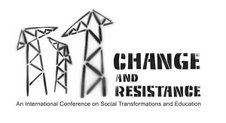University of Warmia and Mazury in Olsztyn
"Communism is haunting post-communist societies from the grave."
Piotr Sztompka
For last decade Poland has traveled the road from dictatorship to democracy, from monopoly to pluralism, from the status of a satellite country to a sovereign country, from the Warsaw Pact to NATO, from an economy of scarcity and a planned economy to a market economy and economic growth, from censorship to freedom, from closed borders to open borders, from state ownership to privatization.
The reaction to this is a nostalgia for…communism. As the process of market transition in Eastern and Central Europe (also in Poland) continues, the proportion of people who report that they favor the socialist system has grown. Nostalgia for the communist past is often defined as the feeling that life under communist rule is preferable to life under the democratic rule of the present. It is difficult to understand, especially difficult for people who fought against communism and rejected it.
Post-communism nostalgia can be in some part a kind of proof that the transformation process in this region of Europe is still unfinished and Poland (among other countries) has stood astride between socialism and capitalism. It can be also a result of the unfulfilled expectations of a new and better future for the newly liberated nations. Nostalgia for communism has important roots. First, it is the longing for safety. It is the longing for a situation in which the state assumes a considerable part of care for the fate of its citizens. And this whole ethos of the market economy is a challenge to be responsible for one's own fate, but at the same time it is also the reflection of large social groups, and the placement of these groups into greater risk. The source of nostalgic attitudes is the merging of economic and social status that has occurred in the course of transformation. Under socialism, many occupations enjoyed extraordinary social prestige, despite low salaries. The ongoing fusion of social and economic status gives those less financially successful a feeling of being deprived of both social position and of economic well-being. This hypothesis was verified through a series of interviews and through the analysis of alternative explanations of nostalgia, for example, theories claiming that post-socialist societies have been affected by collective amnesia. Post-communist nostalgia might have also substantive reasons.
In addition, nostalgia for communism in some part is a result of positive memories related with youth – for many Poles period of Polish People`s Republic is time of their childhood and youth. Time also relieves memories about situations in “real socialism”. This kind of subjectivism garble memory of communism past.
The communist regime can be preferred negatively, positively or fully – and people can become negatively, positively or fully nostalgic about pre-democratic life. At this same moment we can ask what role does nostalgia for the communist past play in consolidating new democracies in East and Central Europe, also in Poland? Do ordinary citizens feel nostalgic toward more than one aspect of life under communism? Toward what aspects of communist life do they feel most and least nostalgic – for the political, economic and other domains of their lives? It is also interesting and important to distinguish those who experience nostalgia from those who do not in terms of demographic, socio-economic and other personal characteristics.
The post-communism nostalgia is visible in some aspects of Central and East European life as politics, society, and culture. In Poland this nostalgia become also popular, become as a kind of style which gets new face. Reality of Polish People`s Republic comes back in films, some people collect things which are related with this period (siphon bottle, glass bottle for milk, old cards, medals, bank-notes, placard, etc) and they have more and more opportunities to visit museums (there is also Museum of Polish People`s Republic on the Internet, in close future in Warsaw will be Museum of Communism “Socland”), galleries (for example Gallery of Socrealism Arts in Kozłówka) or go to pubs, clubs where time has stopped and where they can listen to Bierut`s or Gomułka`s speeches, see sculptures, pictures and parts of TV programmes, films from those times, sit on old furniture and try orangeade, etc. People can also experience communism tours with “crazy guide” during which they visit places related with that epoch (even flat which is adapted to communism times), drive old car like trabant or fiat 125p and eat in milk bar. But for whom it is all? Maybe is it mainly offer for young people who do not remember communism period, some kind of nowadays quest, hunt for fashion?
Nostalgia for communism can be also perceived as “a burden and a problem”, one of the “unresolved problems” that will need to be dealt with in the future together with unemployment, wide gaps in social status, etc. Matter of post-communism nostalgia is complex. One thing is certain. The country without history is like man without memory. Memory about past is important for individuals and for whole society, and it should be use in a constructive way.

No comments:
Post a Comment